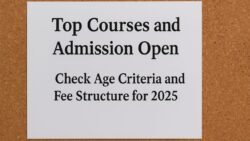Dive Deep Into Epistemology – The pursuit of knowledge has always been central to human progress, but in today’s rapidly evolving world, understanding the foundations of knowledge has become even more critical. At our institute, we create a space where scholars, students, and thinkers can explore the core of epistemology, critically examine the ethics of artificial intelligence, and engage deeply with the philosophy of knowledge. By combining classical approaches with modern challenges, the institute encourages learners to question assumptions, refine methods of reasoning, and analyze how technology is reshaping human understanding. Through academic rigor, collaborative projects, and exposure to global research, participants are guided to bridge timeless philosophical inquiries with pressing contemporary issues. This focus empowers individuals to cultivate clarity of thought, strengthen their ethical judgment, and prepare for leadership in academic, professional, and societal domains where questions of truth, meaning, and responsibility remain at the forefront.

Exploring Epistemology in the Modern World
Epistemology, the study of knowledge, deals with fundamental questions about belief, truth, and justification. Our institute emphasizes how these questions are not abstract but have direct relevance in an era of digital information, misinformation, and rapid technological change. Understanding what constitutes reliable knowledge is critical for making informed decisions in governance, education, and research. Through seminars, debates, and guided research, learners examine classical theories from philosophers like Plato and Descartes while linking them with current challenges such as digital literacy and critical thinking. By studying key perspectives from sources like the Stanford Encyclopedia of Philosophy, students develop a nuanced appreciation of epistemic frameworks. This approach ensures that the discipline of epistemology is not confined to theory but serves as a practical tool to navigate contemporary knowledge landscapes.
AI Ethics: Balancing Innovation and Responsibility
Artificial Intelligence is transforming industries, communication, and even personal lives. However, alongside its benefits arise significant ethical concerns regarding privacy, fairness, accountability, and bias. Our institute provides a platform where learners analyze these issues critically through the lens of both philosophy and real-world case studies. For example, discussions around algorithmic bias and data misuse highlight why ethical frameworks are essential in AI development. Drawing on resources like the World Economic Forum’s insights on AI ethics, participants explore how global policy and local implementation can align to ensure technology serves humanity responsibly. By connecting ethical philosophy with emerging AI applications, we empower scholars and professionals to lead in creating technologies that are transparent, equitable, and aligned with human values. This training is not just about identifying problems but about shaping solutions grounded in both logic and compassion.
Philosophy of Knowledge and Human Progress
The philosophy of knowledge goes beyond asking “what we know” to addressing how knowledge systems shape societies. At our institute, we connect these philosophical inquiries with broader themes of human progress, cultural values, and education. For instance, understanding how knowledge is constructed and transmitted allows us to challenge systemic biases and promote inclusive learning. By examining case studies from education systems, global scientific collaborations, and cultural traditions, learners appreciate the diversity of knowledge practices. External resources like Encyclopaedia Britannica’s overview on the philosophy of knowledge help enrich the curriculum. This perspective allows students and researchers to see how philosophy informs real societal transformation—encouraging them to become thought leaders who advance fairness, innovation, and critical dialogue.
Building a Future Through Critical Inquiry
The work at our institute is not simply academic—it is transformative. By engaging with epistemology, AI ethics, and the philosophy of knowledge, learners build the capacity to ask the right questions in complex, uncertain environments. Critical inquiry equips them to navigate polarized debates, technological dilemmas, and shifting cultural norms with wisdom and clarity. In fostering this intellectual resilience, we emphasize the role of interdisciplinary study, integrating philosophy with technology, policy, and social sciences. Students are encouraged to pursue projects that have direct community and global impact, ensuring that their learning contributes to meaningful change. As highlighted by reports such as UNESCO’s work on knowledge societies, education and knowledge-sharing remain central to building just and sustainable futures. At our institute, every learner is prepared to carry forward this mission, shaping societies where truth, ethics, and critical reasoning guide progress.








